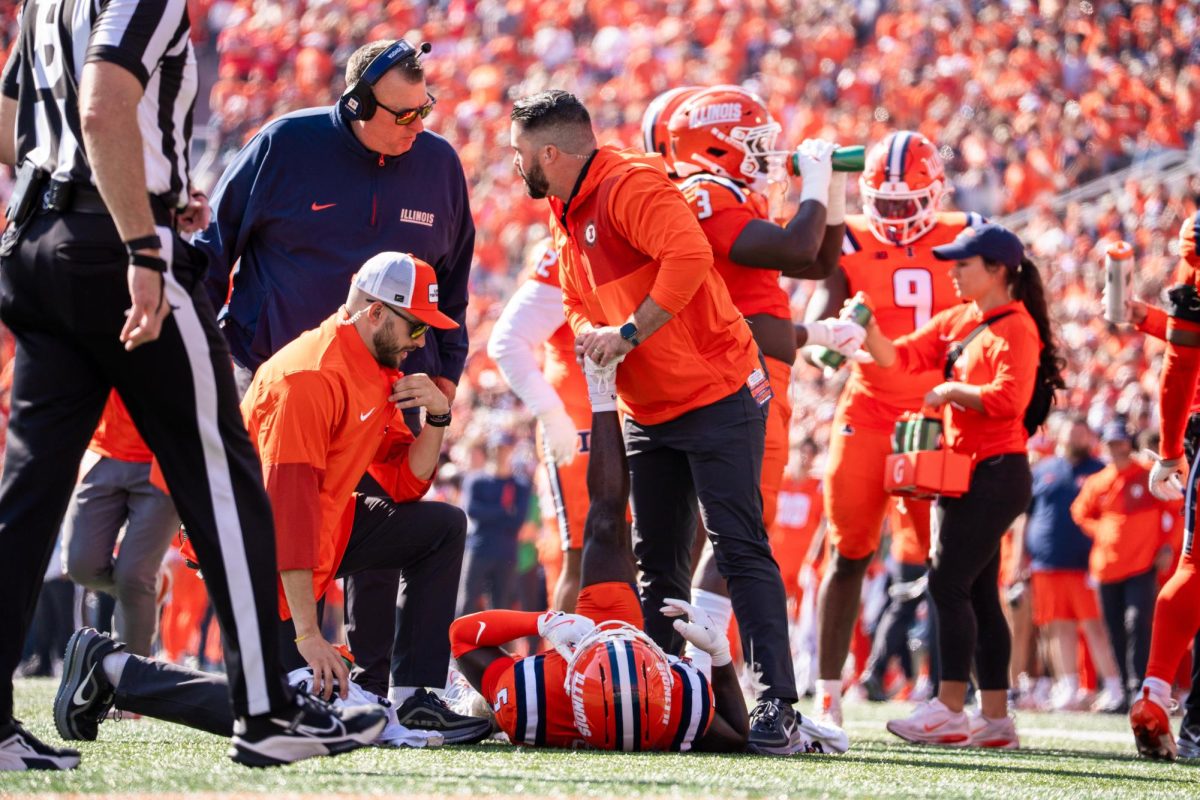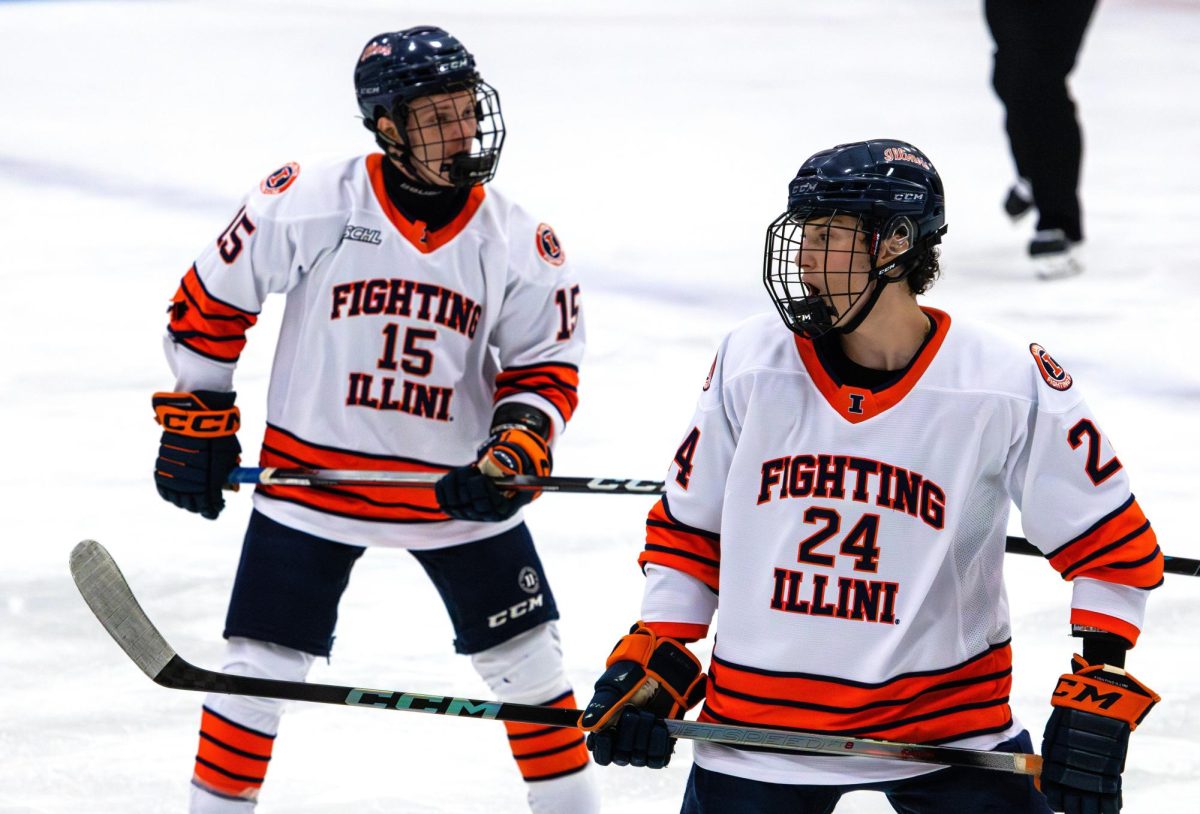Over 3,000 high school and middle school students flooded campus this weekend to participate in the 26th annual Science Olympiad National Tournament.
“The mission is to excite the kids about science and STEM (science, technology, engineering and math) careers,” said Joe Simmons, co-national director of Science Olympiad.
On Thursday, nearly 120 teams mixed lab chemicals and tested their inventions in events such as the Helicopter, Bottle Rockets, Forensics, Sumo Bots — a robot battle — and many more.
Sumo Bots is similar to Battle Bots, where two mechanical car-like robots made by students out of everyday material like scrap metals and old remote control car parts try to knock each other out of the squared ring, like in sumo wrestling.
“These are the top kids in the nation,” Simmons said. “Only the top teams in a state can advance to nationals.”
Get The Daily Illini in your inbox!
Students participating in the Science Olympiad meet after school in their hometowns, where they practice and come up with ideas to compete at the regional level.
From there, the top teams move on to state, where they get a chance to compete at nationals.
Dr. Lizanne DeStefano, professor of educational psychology and director of the I-STEM Education Initiative at the University, said it has been hard getting younger kids interested in math and science because of the negative stereotypes and stigmas the society has placed on these subjects.
“America says it’s for nerds,” she said. “Then the kids that are interested get a lot of grief from their friends … they think it’s not cool to be a scientist. They don’t perceive these careers as lucrative.”
But this is not true for all students — the Science Olympiad proves that there are children who like science and math.
Isaac Barreto is in eighth grade at Archimedean Middle Conservatory School in Miami. He competed in four events — Experimental Building, Elevated Bridge, Optics and Trajectory. Barreto and his teammate, Yeorgia Kafkoulis, attend the same school and have been interested in math longer than they can remember.
“I don’t really care about others … it’s fun and I am not nerdy like people say,“ said Barreto.
He also said he hopes his experience with Science Olympiad will help him get into the Massachusetts Institute of Technology.
Kafkoulis’ mother, Kiriake, said she’s very proud of her daughter and is glad she is participating in the Science Olympiad.
“I love the fact she is learning how to use mathematics to measure out angles,” Kiriake said. “I think it’s unfortunate that such a stigma has been placed on occupations such as these … math and science are basic for our society, and it helps us so much, and especially for my daughter.”
Barreto and Kafkoulis built a wooden catapult device with a swinging arm, which will shoot a tennis ball out to a projected target measured on the ground. Using multiple math equations and formulas, they should be able to hit a low target, if they aim high.
The Science Olympiad concluded Saturday with an awards ceremony at the Assembly Hall, where coaches and team winners received event awards and special prizes.





